Filter by

Dunia Anna
Bumi 2082, Nova sangat terkejut saat tiba-tiba di terminal online-nya muncul surat dari nenek buyutnya, Anna. Surat yang ditulis 70 tahun lalu, tepat tanggal 12.12.12. Tepat saat nenek buyutnya berusia 16 tahun seperti Nova saat ini. Sungguh misterius, bagaimana mungkin 70 tahun lalu nenek buyutnya sudah tahu bahwa kelak cicitnya bernama Nova? Dan dari mana nenek buyutnya tahu tentang keresaha…
- Edition
- -
- ISBN/ISSN
- 9786024413682
- Collation
- 256 p.; ill.; 21 cm
- Series Title
- -
- Call Number
- 823 GAA d
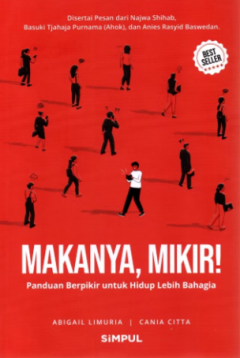
Makanya, mikir! : panduan berpikir untuk hidup lebih bahagia
Pernah nggak, kalian bilang ini ke diri sendiri pas bikin keputusan yang malah nambah masalah atau bikin hidup lebih ribet? Atau, mungkin itu terucap ke orang lain? Sering kali, masalah dan keribetan hidup itu disebabkan bukan karena orang jahat atau bencana besar, tapi karena kita sendiri atau orang lain di sekitar kita yang mikirnya kusut. Karena itu, mikir dengan benar jadi penting banget…
- Edition
- Ed. 1
- ISBN/ISSN
- 9786238944026
- Collation
- 290 p. ; ill. ; 20 cm
- Series Title
- -
- Call Number
- 301 LIM m

The Australian crime file 2
- Edition
- -
- ISBN/ISSN
- 9781741782530
- Collation
- -
- Series Title
- -
- Call Number
- 364 KID a
- Edition
- -
- ISBN/ISSN
- 9781741782530
- Collation
- -
- Series Title
- -
- Call Number
- 364 KID a
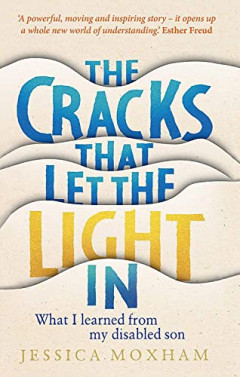
The cracks the let the light in
Jessica Moxham thought she was prepared for the experience of motherhood. Armed with advice from friends and family, parenting books and antenatal classes, she felt ready. After giving birth, she found herself facing a different, more uncertain reality. Her son, Ben, was fighting to stay alive. When Jessica could finally take him home from hospital, the challenges were far from over. In t…
- Edition
- -
- ISBN/ISSN
- 9781913068349
- Collation
- 264 p. ; 22 cm
- Series Title
- -
- Call Number
- 305 MOX t

Girl online on tour
- Edition
- -
- ISBN/ISSN
- 9780141359953
- Collation
- -
- Series Title
- -
- Call Number
- 800 SUG g
- Edition
- -
- ISBN/ISSN
- 9780141359953
- Collation
- -
- Series Title
- -
- Call Number
- 800 SUG g

The power of geography: ten maps that reveal the future of our world
In this revelatory new book, Marshall explores ten regions that are set to shape global politics in a new age of great-power rivalry: Australia, Iran, Saudi Arabia, the UK, Greece, Turkey, the Sahel, Ethiopia, Spain and Space. Find out why Europe’s next refugee crisis is closer than it thinks as trouble brews in the Sahel; why the Middle East must look beyond oil and sand to secure its future…
- Edition
- Ed. 1
- ISBN/ISSN
- 9781783966028
- Collation
- 380 p. ; ill. ; 20 cm
- Series Title
- -
- Call Number
- 909 MAR t
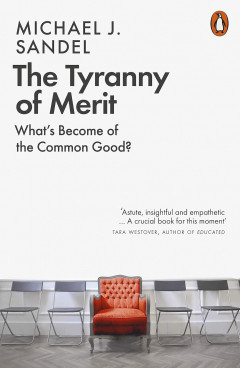
The tyranny of merit
- Edition
- Ed. 1
- ISBN/ISSN
- 9780141991177
- Collation
- 272 p. ; 20 cm
- Series Title
- -
- Call Number
- 320 SAN t
- Edition
- Ed. 1
- ISBN/ISSN
- 9780141991177
- Collation
- 272 p. ; 20 cm
- Series Title
- -
- Call Number
- 320 SAN t
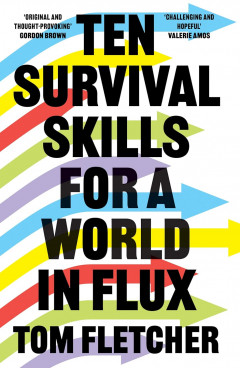
Ten survival skills for a world in flux
- Edition
- Ed. 1
- ISBN/ISSN
- 9780008447809
- Collation
- 310 p. ; 23 cm
- Series Title
- -
- Call Number
- 303 FLE t
- Edition
- Ed. 1
- ISBN/ISSN
- 9780008447809
- Collation
- 310 p. ; 23 cm
- Series Title
- -
- Call Number
- 303 FLE t
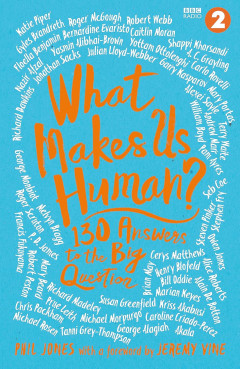
What makes us human?: 130 answers to the big question
- Edition
- Ed. 1
- ISBN/ISSN
- 9781472272522
- Collation
- 399 p. ; 23 cm
- Series Title
- -
- Call Number
- 301 VIN w
- Edition
- Ed. 1
- ISBN/ISSN
- 9781472272522
- Collation
- 399 p. ; 23 cm
- Series Title
- -
- Call Number
- 301 VIN w

How to live with each other: an anthropologist's notes on sharing a divided w…
- Edition
- Ed. 1
- ISBN/ISSN
- 9781788163897
- Collation
- 353 p. ; 21 cm
- Series Title
- -
- Call Number
- 301 SAM h
- Edition
- Ed. 1
- ISBN/ISSN
- 9781788163897
- Collation
- 353 p. ; 21 cm
- Series Title
- -
- Call Number
- 301 SAM h
 Computer Science, Information & General Works
Computer Science, Information & General Works  Philosophy & Psychology
Philosophy & Psychology  Religion
Religion  Social Sciences
Social Sciences  Language
Language  Pure Science
Pure Science  Applied Sciences
Applied Sciences  Art & Recreation
Art & Recreation  Literature
Literature  History & Geography
History & Geography